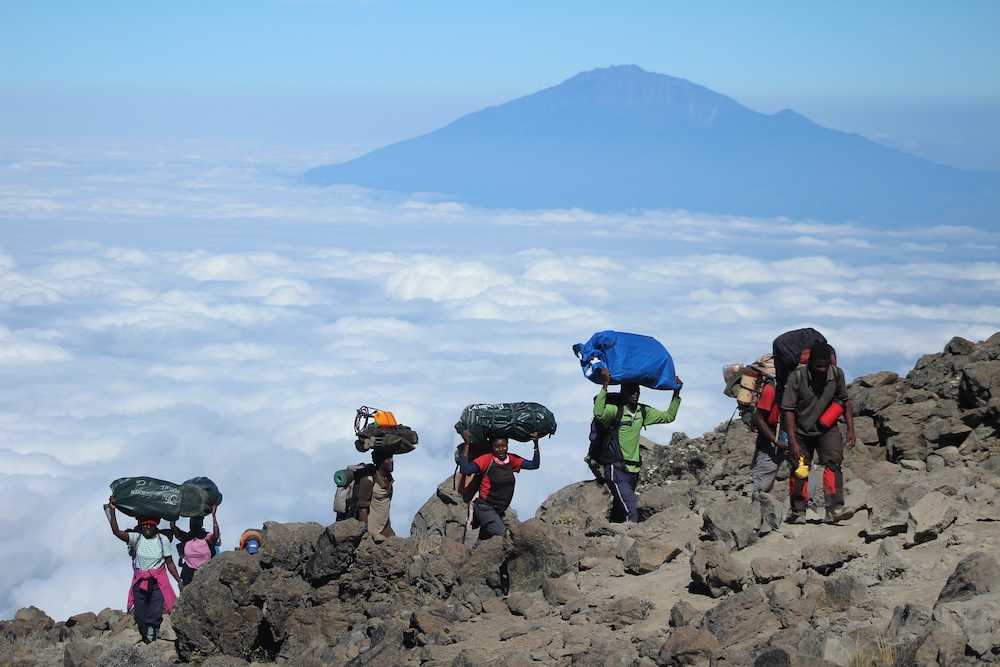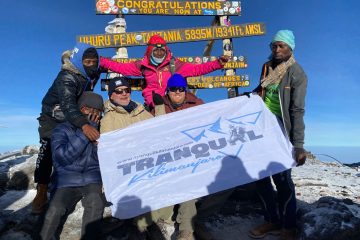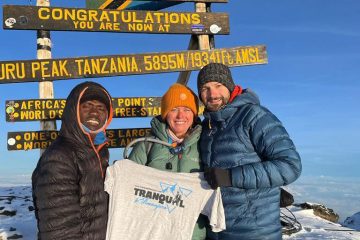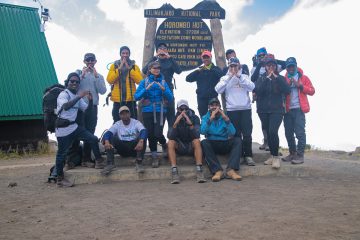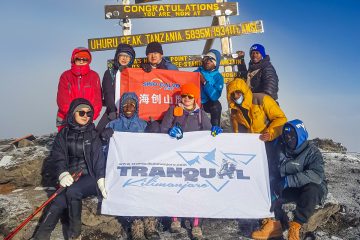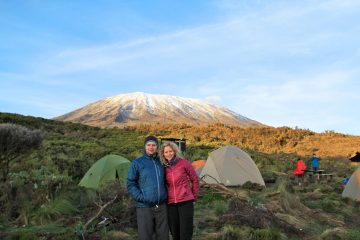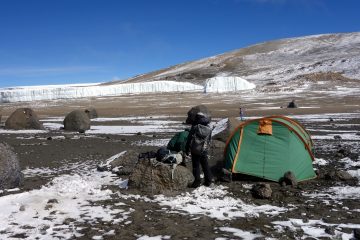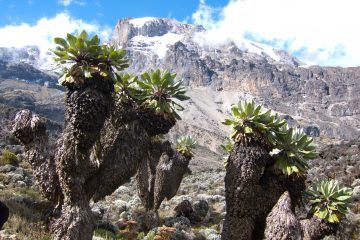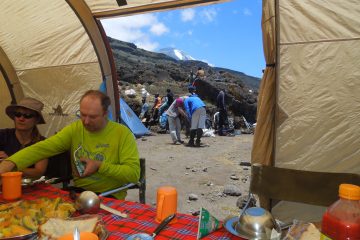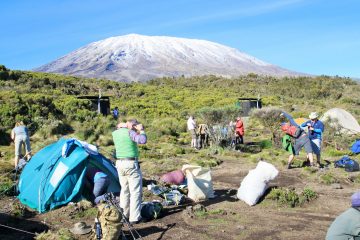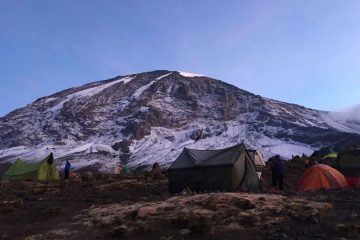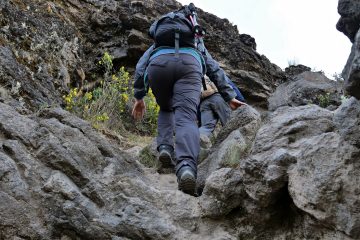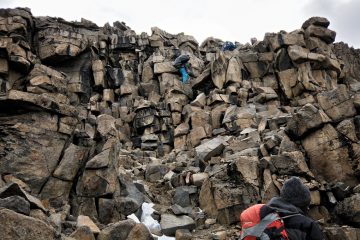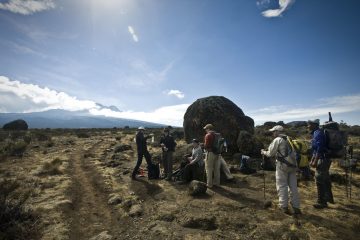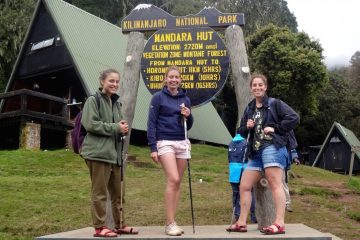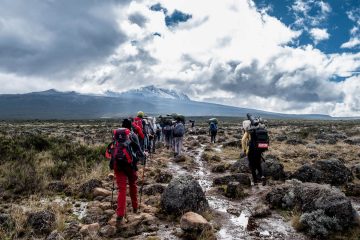Guide to Climber & Porter to Climber Ratio
A specialized outfitter devoted to guiding customers up Mount Kilimanjaro is called Climbing Kilimanjaro. For every two climbers, we assign one qualified mountain guide. This ratio enables safe supervision of all of our climbers and effective camp management. Eight climbers in a group with one guide has been seen, which may save money but may come at a larger risk to safety.
You’ll understand why we require a sizable crew of porters once you see the quantity of gear—including tents, kitchen supplies, bathroom facilities, and food—that must be transported up the mountain.
The National Parks Authority maintains severe weight restrictions on how much a single porter is permitted to transport.
In an effort to reduce costs, this is frequently disregarded, which causes porters to be overworked. We strictly restrict the loads that our porters carry as part of our dedication to their welfare.
Per climber, there are often 3–4 porters. Depending on the route and the height of the climb, this ratio changes.
How many porters do you need on Kilimanjaro?
As an issue of how many porters each climber will be assigned rests upon us. The number will depend on the type of route you choose. For example, the Marangu route which entirely relies on huts for accommodation, unlike the other route that requires camping, you will be assigned fewer porters. The ratio of porter to climber ratio dictates 2 or 3 porters per climber. Also the more the number of climbers in a group, the lesser the porters.
How much are porters paid per day?
We take care of our porters well and they take care of you well in return.
We pay our porters well as per the standard wages. These wages plus tipping they receive from climbers is standard for all porters on Mount Kilimanjaro. To know more about tipping for porters per day, click here.
What do the porters do/carry on Mount Kilimanjaro?
It is the porters’ duty to assist in carrying essentials up the mountain, things like food, cooking equipment, camping gear, tents, tables, medical supplies chairs, and so on.
It is a challenging task that is why they are strong, knowledgeable due to the many times they have climbed Mount Kilimanjaro assisting climbers for long and they have remarkable stamina levels and fitness.
We take porter overall wellbeing with utmost seriousness and we try our best to ensure that all our porters are satisfied and treated well.
How much weight does each porter on Kilimanjaro carry?
The maximum weight that a porter should carry is 20kg. This is the official Kilimanjaro park limit. Packs should be weighed at park entrance gates to ensure that porters are not carrying too much. Some of the weight will decrease over time as food supplies get used up. As climber bag weights usually do not decrease, responsible operators limit the weight to 15kg. Unfortunately, too many unscrupulous companies force porters to carry excess weight. Furthermore, when guides and park wardens all struggle to make a better living, the temptation for bribery is high. In the most unfortunate cases, porters have even been found carrying packs weighing up to 35kg. Also, when porters who are not adequately prepared for the harsh mountain conditions fall sick on the mountain, their guides may not arrange for a replacement porter, so other porters have to take on the extra weight. Good tour operators will ensure porters are carrying no more than 20kg and distribute the weight fairly among their porters every morning.
How we take care of our porters, our association with the porters.
Our porters receive a set standard wage, which can sustain them well, the wages plus the tips are an added advantage to our porters.
- Our porters receive payment immediately after a climb descends.
- Our porters’ tips are very transparent and they receive a fair share of their tips.
- Our porters have the proper equipment and mountain gear to manage climbing Mount Kilimanjaro.
- Our porters’ clothing, sleeping bags and tents are warm and some waterproof enough to handle the harsh mountain conditions.
- Our porters eat three nutritious meals per day, in adequate quantity.
- If more porters are needed for a group, we can add more according to request or demand.
Advantages of employing porters on Kilimanjaro Treks
Employing porters on Mount Kilimanjaro offers several advantages:
- Lighter Load: Porters carry the majority of the gear and supplies, easing the physical burden on trekkers. This allows climbers to focus on their own endurance and acclimatization, increasing their chances of reaching the summit.
- Safety and Support: Porters are experienced in trekking the mountain and familiar with the routes. They provide valuable guidance, support, and assistance throughout the journey, ensuring trekkers’ safety and well-being.
- Faster Trekking: With porters handling the heavy equipment, trekkers can maintain a more comfortable pace, reducing fatigue and enhancing the overall trekking experience.
- Acclimatization: Climbers can better acclimate to the high altitude when they are not overburdened with heavy packs. Adequate acclimatization is crucial for a successful summit attempt.
- Focus on Enjoyment: By entrusting the logistics to porters, trekkers can focus on enjoying the stunning landscapes and unique flora and fauna of Kilimanjaro without worrying about the logistics of carrying equipment.
- Supporting Local Communities: Hiring local porters supports the livelihoods of the communities living around Kilimanjaro. It creates employment opportunities and contributes to the local economy.
- Environmental Conservation: Porters and guides promote responsible trekking practices, ensuring that the trails and campsites are left clean and free from litter, preserving the pristine environment of Kilimanjaro.
- Cultural Exchange: Interacting with porters allows trekkers to learn about the local culture and customs of the region, enriching the trekking experience with a deeper understanding of the area’s traditions.
- Logistical Expertise: Porters are skilled at setting up camp and organizing equipment, making the trek more comfortable and efficient for trekkers.
- Ethical Trekking: Using porters through reputable trekking companies ensures fair treatment, proper equipment, clothing, and fair wages for the porters, promoting ethical and responsible trekking practices.
Employing porters on Mount Kilimanjaro not only enhances the trekking experience but also contributes to the safety, well-being, and success of the climbers. It supports the local communities and fosters responsible and sustainable tourism, making the journey both enjoyable and impactful.
